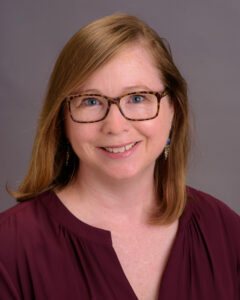Growing up in the Middle Eastern country of Oman, Dr. Kerri Nowell’s experiences with disability and how different cultures treat disability began early. One of six children, Nowell’s younger brother was born with a hearing impairment. A neighboring Omani family also had a child who was born deaf around the same time.
While Nowell’s family treated her brother no differently than any of their other children, the Omani family, as influenced by their Middle Eastern culture, kept their young girl with a disability out of the public eye.
“Even though our families were friendly and spent time together, we rarely saw their daughter who had the hearing impairment,” Nowell said. “It opened my eyes at an early age to the differences in how people with disabilities are treated. While my brother was allowed to participate in every activity, the little girl rarely was allowed to leave the house. This disparity really stuck with me, even years after moving out of the Middle East.”
Nowell credits these early experiences with helping develop her passion for working with children with disabilities. After moving to the United States to attend college, Nowell spent years working in schools as a school psychologist. In those years, she gained an interest, and a later a passion, in developmental disorders and how they affect children.
In order to learn more, Nowell left the public school system and secured a position as a site supervisor for the Simons Simplex Collection before pursuing a doctoral degree in school psychology in Houston. During her time with Simons she met Dr. Stephen Kanne. Later, as a doctoral psychology student, Nowell worked with Dr. Kanne while he was the director of the autism center at the Texas Children’s Hospital in Houston.
Soon after, Kanne moved to the Thompson Center as the executive director, and after Nowell completed her degree, Kanne offered her a position as a postdoctoral fellow at the Thompson Center.
“The opportunity to move Columbia and be a part of such a nationally renowned institution like the Thompson Center was impossible to overlook,” Nowell said. “Getting the opportunity to work at such an amazing place with high-caliber colleagues and amazing patients has been wonderful.”
After spending a year as a postdoctoral fellow, Nowell accepted a position in 2017 as an assistant professor of health psychology at the Thompson Center and the School of Health Professions at the University of Missouri.
In that position, Nowell serves as a clinical psychologist and diagnostician, helping to assess and diagnose as many as five children a week with autism and other neurodevelopmental disorders.
Nowell also is passionate about research and has plans to conduct many different research projects on autism and developmental disorders in the future.
“My previous work with Simons inspired in me a strong interest in genetic research in autism,” Nowell said. “I’m very interested in how differences in genetics among children play out in terms of their behaviors. If we can establish what specific genetic differences cause specific behavioral patterns, we can better treat individual patients and meet their specific needs.”
Additionally, Nowell is interested in researching ways to improve early autism diagnosis in minorities and lower income people. She also wants to investigate females with autism and how their repetitive behaviors might differ from males with the disorder.
As one of the newest members of the Thompson Center faculty, Nowell has already made huge contributions treating patients in the clinic and performing research. And she has only just begun!


